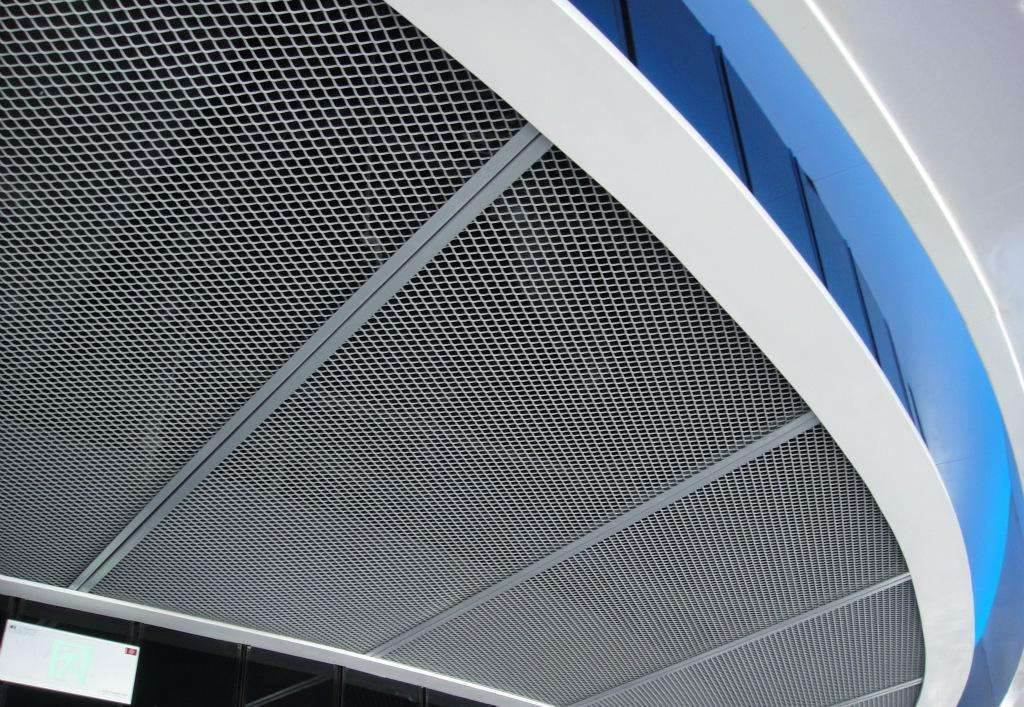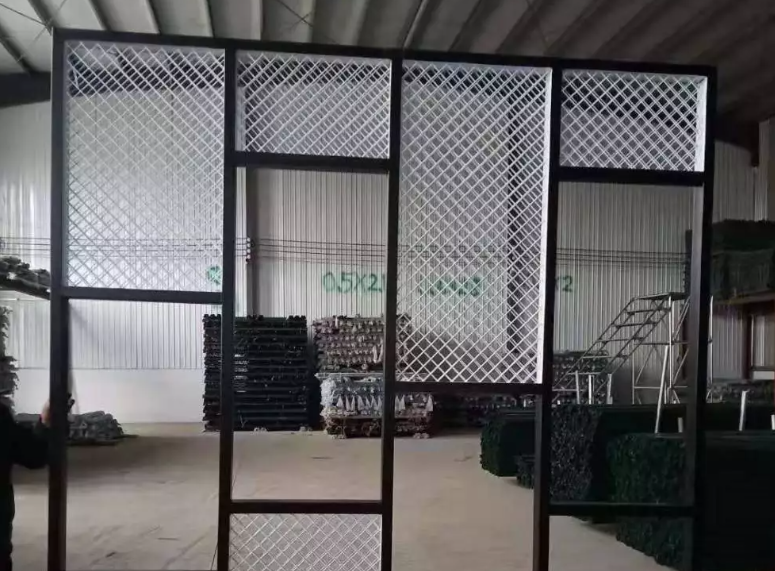Due to its advantages such as light weight, strength, corrosion resistance, thermal conductivity, ease of processing, and aesthetics, aluminum alloy materials are widely used in building materials.
Building exterior walls and roofs
Aluminum mesh combines the high load-bearing capacity of metal with lightweight structure, which can meet the strength requirements of building exterior walls and roofs. At the same time, it has the characteristics of durability, corrosion resistance, fire prevention, self-cleaning, sound insulation, and aesthetics, making it one of the main materials for modern large-scale building exterior walls and roofs.

Solar panel bracket
Aluminum mesh can be used to make brackets for solar panels, which can meet the weight requirements of solar panels and have characteristics such as corrosion resistance and lightweight.
Interior decoration and partition
Aluminum mesh has excellent plasticity and surface smoothness, making it widely used in interior decoration, such as suspended ceilings, partitions, screens, etc. It can also play a role in dehumidification and ventilation.

Staircase handrails
Aluminum mesh can be used to make stair handrails, which not only have the characteristics of high strength, corrosion resistance, and not easy to rust, but also can be made into various details and shapes.
Laboratory and hospital use
Aluminum mesh can also be used as a partition between laboratories and hospitals, such as operating rooms and X-ray rooms, to prevent infection and cross infection of bacteria. At the same time, it also has the characteristics of being beautiful and lightweight.
In summary, aluminum mesh has a wide range of applications in building materials and can meet the needs of different occasions, especially in large buildings, interior decoration, and laboratory hospitals, with more significant advantages.


